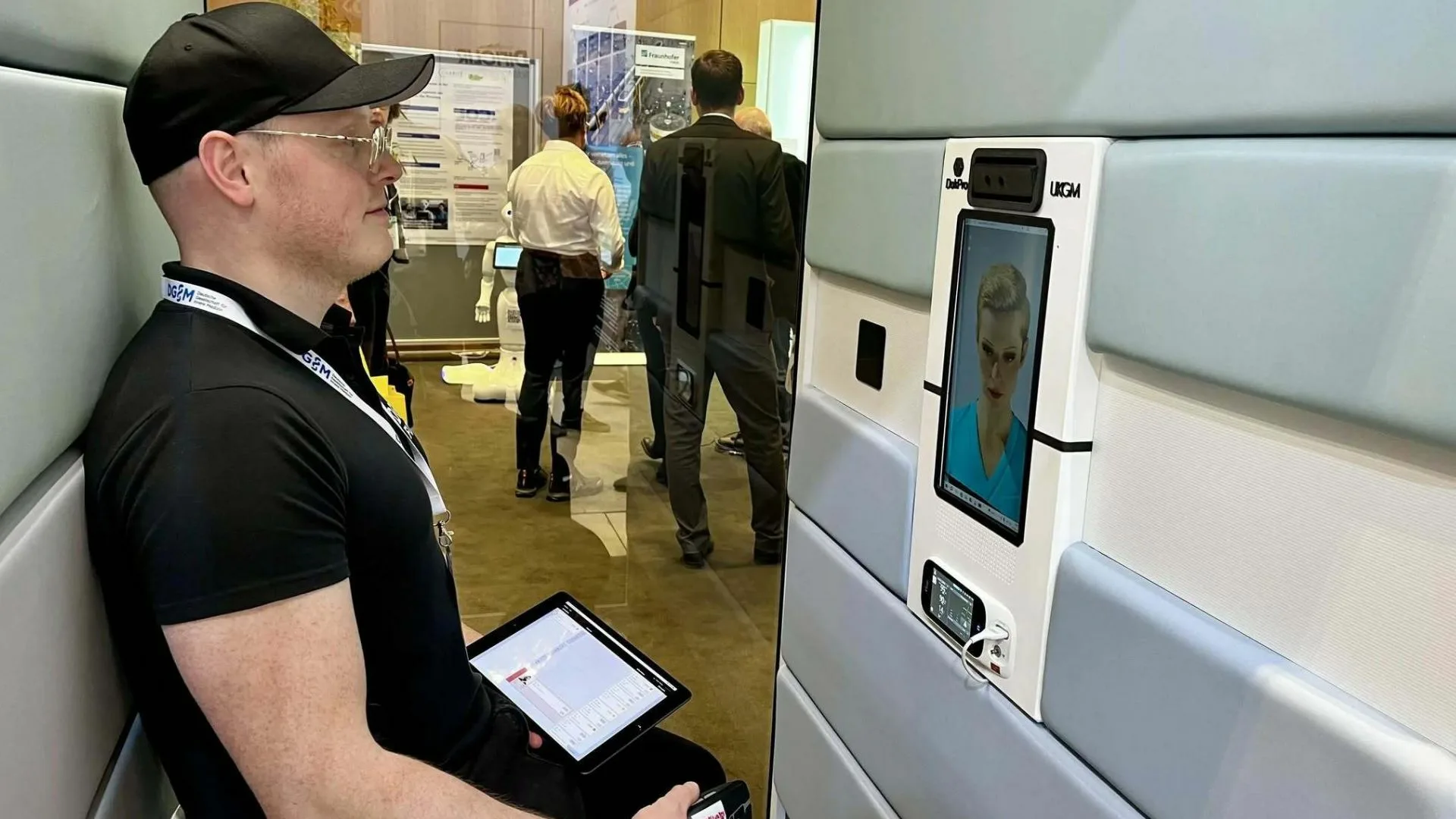
08 May AI Virtual Assistants Transform Emergency Department Triage in Hospitals
According to an article published by Wiesbadener Kurier, university hospitals in Marburg and Berlin are trialling an artificial intelligence (AI) system known as “DokPro” to enhance the triage process in emergency departments. The system employs an avatar that interviews patients classified as non-critical, collects data such as symptoms and vital signs, and proposes an initial diagnosis, which is subsequently reviewed by a doctor. The aim is to reduce waiting times and ease the workload of healthcare staff, especially during peak periods such as public holidays, when emergency services are often the first point of contact with the healthcare system.
In parallel, Berlin’s Charité hospital is developing a multilingual robot capable of answering patients’ questions in the waiting area and streamlining the admission process. Initial feedback from medical staff has been positive. For the time being, the “DokPro” system will only be used with patients categorised as low urgency (green or blue), and it is expected to gain approval as a medical device within the next 18 months.
At the same time, other digital solutions like the virtual assistant AiMA Beyond Ai continue to work towards transforming the relationship between patients and healthcare services. AiMA Beyond Ai stands out for its empathetic, multilingual, and personalised communication capabilities, offering preliminary medical guidance, treatment reminders, and support in navigating the healthcare system. Thanks to its intuitive interface and advanced use of conversational AI, AiMA Beyond Ai not only improves accessibility and efficiency but also contributes to a more human and compassionate patient care experience.
Image: Peter Mross, project leader of the AI-based assistance system “DokPro”, hopes to obtain approval as a medical device within the next 18 months. © Karl Schlieker

